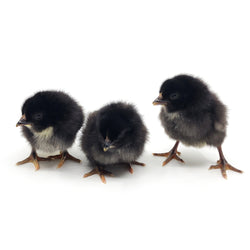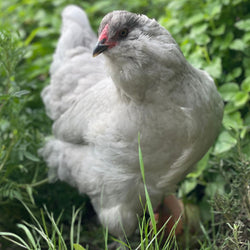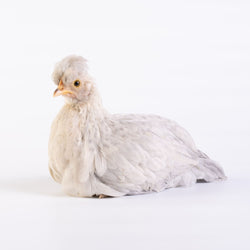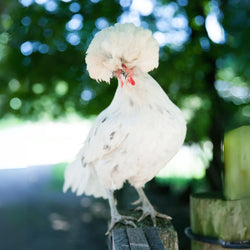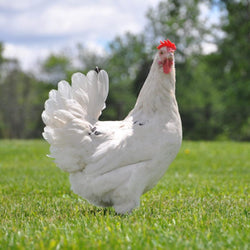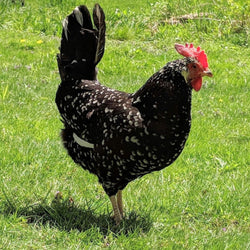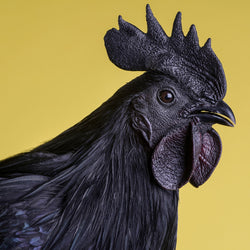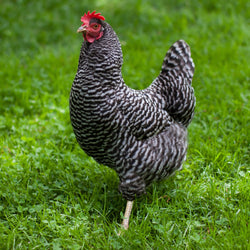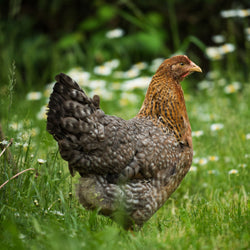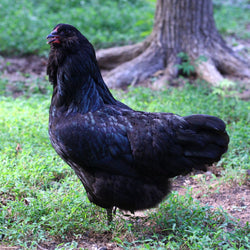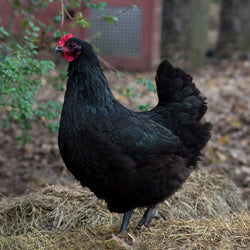page=2/--
Frequently Asked Questions
Here we answer the most commonly-asked questions about ordering, chicken care, and more.
How do I calibrate my hygrometer?
Hatching fertile eggs can be such a fun adventure! To increase your chance of a successful hatch, you may want to plan ahead and calibrate your hygrometer/thermometer. One of the most common problems during hatching is incorrect humidity and temperature in the incubator. Even a new hygrometer may not be properly calibrated, so it is better to check your equipment before starting a batch of eggs. To calibrate your hygrometer: Mix 1/2 cup of salt and 1/4 cup of water in a coffee cup or other small container. It will be a thick mixture. Put your thermometer/hygrometer into a large...
Read MoreWhat is candling?
Candling is the process of shining a bright light into an egg to have a look at the contents. It used to be done with a candle in a dark room, but now high intensity light can be used in a darkened box. For instance, here is Brinsea's egg candler: Commercially, eggs are candled to make sure they are free of blood or meat spots. This is why, incidentally, white eggs used to be the most popular type of commercial egg. It's not just a matter of finding a high production, breed, but also of easy examination to make sure...
Read MoreWhat is incubation?
Incubation is similar to "gestation" in animals that give live birth. It's the process in which the embryo in a fertilized egg develops into a baby and hatches out. Successful incubation of chicken eggs requires heat, humidity---and time. Incubating chicken eggs takes 21 days. A hen will incubate or set on her eggs when she is "broody." Her body temperature and the conditions in the nest provide the appropriate conditions to hatch baby chicks. If you don't have a broody hen to incubate your eggs, you might use an automatic incubator to provide the appropriate environment. Those can range from...
Read MoreWhat is a setter and what is a non-setter in chickens?
A setter is a hen who will hatch her eggs. A non-setter is a hen who will not hatch eggs. The vast majority of chicken breeds will occasionally go "broody," meaning they will set their eggs and try to hatch them. However, a "setter" usually refers to a breed (or a specific hen) that frequently goes broody. Orpingtons and cochins are setters, for instance. Buff Orpington Hen Some high production breeds like Rhode Island Reds and Leghorns seldom if ever go broody and want to set eggs. Those are non-setters. Which is best just depends on your perspective. If you...
Read MoreIs the floor surface important with ducks and geese?
Yes!--it is very important. As babies, ducklings and goslings need a surface they can grip until their leg muscles and hips are strong, just as with baby chicks. If the floor surface is too slippery, they can develop spraddle leg, a condition in which their hip muscles have not developed properly and they are not able to stand. To reduce the risk of spraddle leg, you will want to avoid slick flooring in incubator trays, transport carriers, and brooders. Also, do not use newspaper or cardboard flooring for the first week of their lives. The best bedding is wood shavings,...
Read MoreHow can I have a successful classroom hatching project?
Hatching eggs at school can be a rewarding and enlightening school project! In fact, the founder of My Pet Chicken was first charmed by chickens during a hatching project in grade school. After that project, she was a changed person! In her eight-year-old heart, she knew for a fact that she would keep chickens herself and help others adopt chickens when she grew up. And now, years later, you can see from our website how that turned out! So, at My Pet Chicken, we have a definite soft spot for schools who want to organize hatching projects. That said, though,...
Read More- 1
- 2








"The Clubhouse" Coop
Easy to assemble and built to last, the Clubhouse Coop is the perfect starter coop for a small flock.
